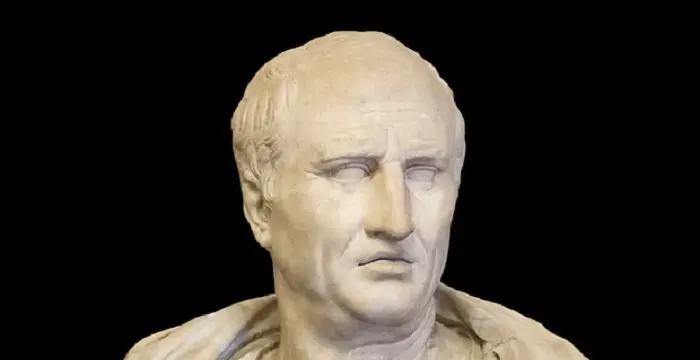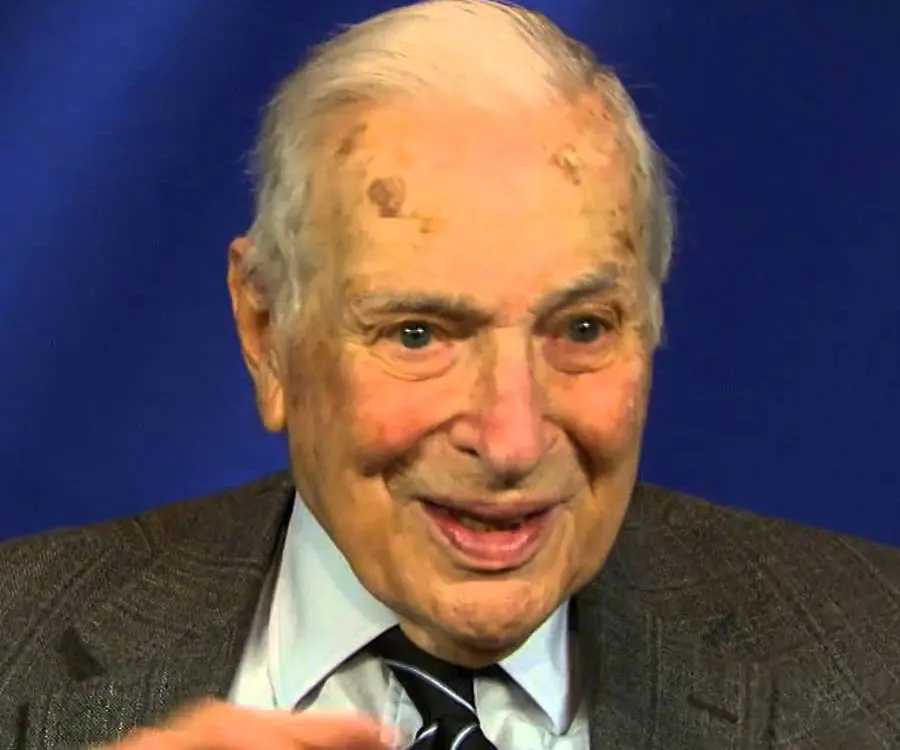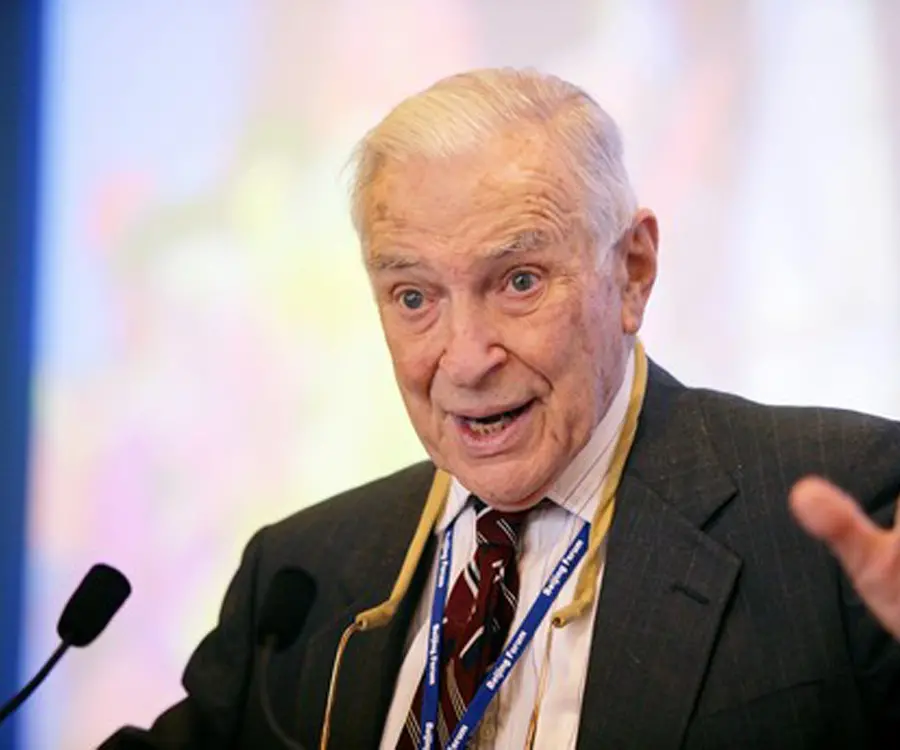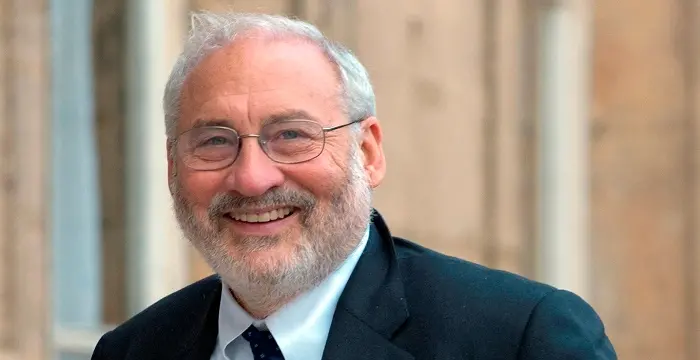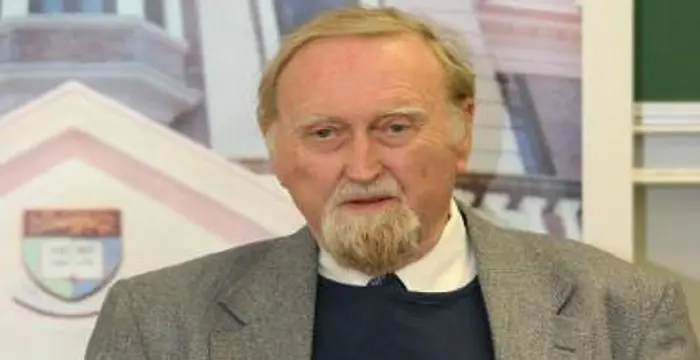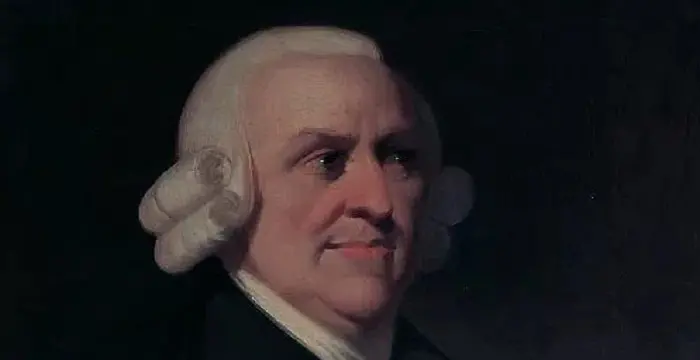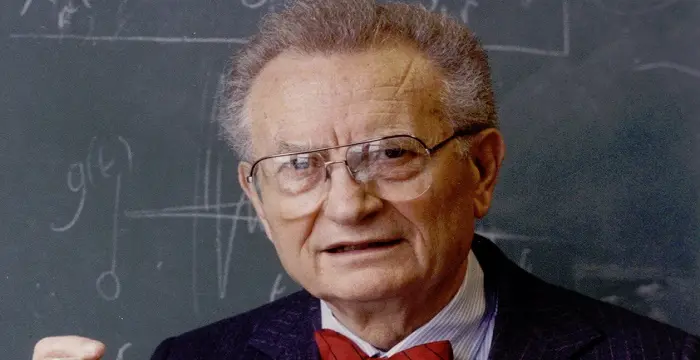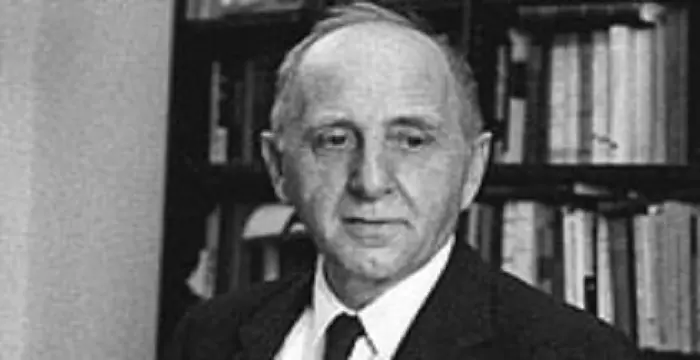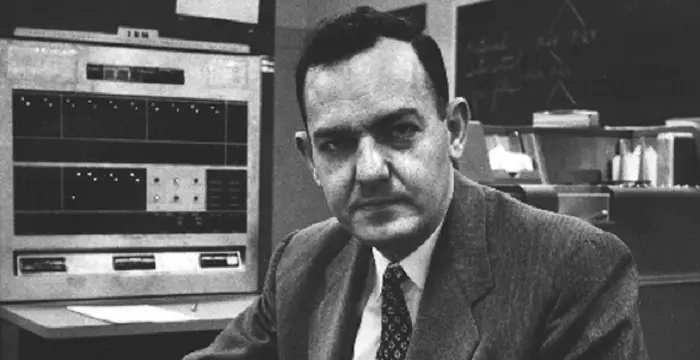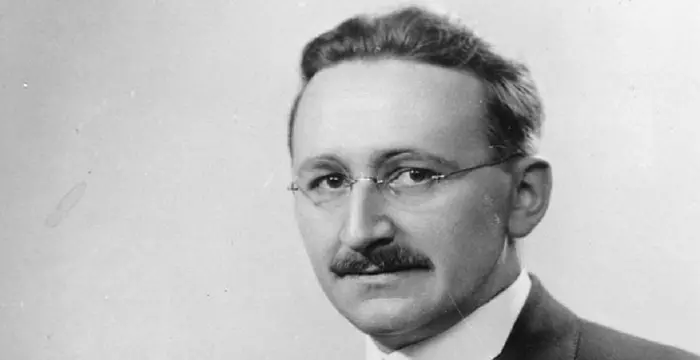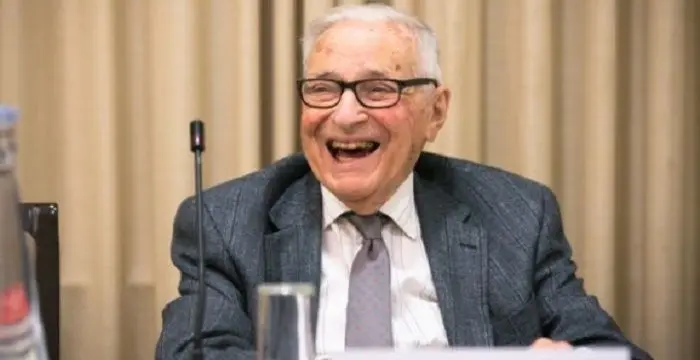
Kenneth Arrow - Economists, Family and Facts
Kenneth Arrow's Personal Details
Kenneth Arrow is an American economist whose works have earned him the Nobel Memorial Prize in Economic Sciences in 1972
| Information | Detail |
|---|---|
| Birthday | August 23, 1921 |
| Nationality | American |
| Famous | Columbia University, Intellectuals & Academics, Economists, Economists, Political Theorist |
| Spouses | Selma Schweitzer |
| Known as | Kenneth Joseph Arrow |
| Childrens | Andrew Seth, David Michael |
| Universities |
|
| Notable Alumnis |
|
| Birth Place | New York City, USA |
| Gender | Male |
| Father | Harry |
| Mother | Lilian |
| Sun Sign | Leo |
| Born in | New York City, USA |
| Famous as | Economist & Political Theorist |
// Famous Political Theorist
Cicero
Cicero was a Roman philosopher, politician, lawyer, and orator. This biography explores his childhood, early life, major works, achievements and timeline.
Kenneth Arrow's photo
Who is Kenneth Arrow?
Kenneth Arrow is an American economist whose works have earned him the Nobel Memorial Prize in Economic Sciencesin 1972. He is best known for his contributions in the ‘General Equilibrium’ theory and ‘Welfare- Economics’. A mathematics graduate from the Columbia University, he became interested in economics under the guidance of reputed statistician Harold Hotelling, and subsequently shifted his career into economics. As an academician, he has taught at prestigious universities like the Stanford University and Harvard University. As part of his research, he has contributed various theories and ideas in economics, like the Arrow’s impossibility theorem, Arrow–Debreu model in mathematical economics and The Fundamental theorems of Welfare Economics. In 1972, he was awarded the Nobel Memorial Prize in Economic Sciences along with Sir John Hicks for ‘their pioneering contributions to general economic equilibrium theory and welfare theory’. He is among the first economists to identify the presence of a learning curve in economic theory, along with linking increased experience to higher productivity. At present, he is the Joan Kenney Professor of Economics and Professor of Operations Research, Emeritus at Stanford University.
// Famous Economists
Joseph E. Stiglitz
Joseph E. Stiglitz is a Nobel Prize winning American economist. Check out this biography to know about his childhood, family life, achievements and other facts related to his life.
Sir Clive William John Granger
Clive. W.J. Granger is a Nobel Prize winning economist and a trendsetter in economic science. With this biography, explore all about Clive Granger’s profile and life.
Adam Smith
Adam Smith was a Scottish Philosopher and Political Economist. Read this biography to learn more about his childhood, profile, life and timeline.
Childhood & Early Life
Kenneth Joseph Arrow was born to Harry and Lilian on 23 August 1921 in New York City, USA. He has a sister named Anita Arrow Summers who also grew up to become an economist.
After completing his high school education from the Townsend Harris High School in New York City, he went on to pursue graduation from City College, New York. In 1940 he graduated with a degree of Bachelor of Science in Social Science but a major in Mathematics.
In 1941, he completed his n M.A. in Mathematics from Columbia University. At the university, he studied under mathematics statistician Harold Hotelling who had a great influence on him.
Career
Between the years 1942 and 1946, during the World War II, he served in the United States Armed City Corps as a weather officer subsequently rising to the rank of a Captain.
He spent the following three years pursuing his graduation studies in Economics at the Columbia University along with research work at the Cowles Commission for Research in Economics affiliated to the University of Chicago. Between 1948 and 1949 he worked as an Assistant Professor at the University of Chicago.
In 1942, he was appointed at the Stanford University as Assistant Professor of Economics and Statistics. He later became Professor of Economics, Statistics, and Operations Research and continued work at the University until 1968.
In 1951 he published the ‘Impossibility theorem’ also known as Arrow's paradox in his book titled ‘Social Choice and Individual Values’. The theorem states that ‘when voters have three or more distinct alternatives (options), no ranked order voting system can convert the ranked preferences of individuals into a community-wide (complete and transitive) ranking while also meeting a pre-specified set of criteria.’ The defined criteria are unrestricted domain, non-dictatorship, Pareto efficiency, and independence of irrelevant alternatives.
In 1951 he put forward the first and second fundamental theorems of welfare economics along with their proofs.
A few years later he along with Lionel W. McKenzie and Gérard Debreu developed a model that introduced a modern theory of General Equilibrium in economics. As per their approach, the understanding of terms in theory was not set by axioms.
In 1954, he along with Gérard Debreu introduced one of the most integral as well as common part of the General Equilibrium theory. According to the Arrow–Debreu model, ‘under certain economic assumptions there must be a set of prices such that aggregate supplies will equal aggregate demands for every commodity in the economy’.
In 1968, he joined Harvard University as Professor of Economics and taught there till 1979. In 1979, he returned to Stanford University as Joan Kenney Professor of Economics and Professor of Operations Research. In 1991 he became Professor Emeritus at Stanford University.
Among his numerous publications are his major works ‘Social Choice and Individual Values’ (1951), ‘Existence of a Competitive Equilibrium for a Competitive Economy’ with Gerard Debreu (1954), ‘The Economic Implications of Learning by Doing’ (1962), ‘Essays in the Theory of Risk Bearing’ (1971), ‘General Competitive Analysis’ with Frank Hahn (1971) and ‘The Limits of Organization’ (1974).
Major Works
He is a respected economist and writer known for his findings in the field of welfare economics. He has worked on economic theory and operations with focus on ideas like general equilibrium analysis, social choice theory, inventory theory, risk handling, information economics and the new- growth theory.
Awards & Achievements
In 1957, he received the John Bates Clark Medal of the American Economic Association.
In 1959, he was inducted as a Fellow of the American Academy of Arts and Sciences. Other academic societies that he is a member include the National Academy of Sciences, Institute of Mathematical Statistics, the Econometric Society, the American Statistical Association and the American Philosophical Society.
In 1972, he was awarded the Nobel Prize in Economics along with British economist John Hicks.
In 1986 he received the John von Neumann Theory Prize presented by the Institute for Operations Research and the Management Sciences.
In 2004, he received the 2004 National Medal of Science from President George W. Bush.
He was elected as a Foreign Member of the Royal Society of London in 2006.
He has received honorary degrees of LL.D. from renowned universities such as the University of Chicago and the City University of New York. He also was given an honorary degree as Doctor of Social and Economic Sciences from the University of Vienna.
Personal Life & Legacy
In 1947 he married Selma Schweitzer and the couple have two sons: David Michael and Andrew Seth who both grew up to pursue acting.
He has served as the President of various professional societies like Econometric Society in 1956, The Institute of Management Sciences in 1963 and American Economic Association in 1973.
// Famous Intellectuals & Academics
Bertil Gotthard Ohlin
Bertil Gotthard Ohlin was a famous Swedish economist. This biography profiles his childhood, family life & achievements.
Emily Greene Balch
Emily Greene Balch was an American economist, sociologist and pacifist who won the 1946 Nobel Peace Prize. This biography of Emily Greene Balch provides detailed information about her childhood, life, achievements, works & timeline.
Martin Buber
One of the greatest philosophers to have ever walked on earth, Martin Buber contributions to philosophy is a long-standing one. Explore all about his profile, childhood, life and timeline here.
Kenneth Arrow's awards
| Year | Name | Award |
|---|---|---|
Other | ||
| 0 | John Bates Clark Medal (1957) | |
| 0 | Nobel Prize in Economics (1972)von Neumann Theory Prize (1986) | |
| 0 | National Medal of Science (2004) | |
| 0 | ForMemRS (2006) | |
Kenneth Arrow biography timelines
- // 23rd Aug 1921Kenneth Joseph Arrow was born to Harry and Lilian on 23 August 1921 in New York City, USA. He has a sister named Anita Arrow Summers who also grew up to become an economist.
- // 1940After completing his high school education from the Townsend Harris High School in New York City, he went on to pursue graduation from City College, New York. In 1940 he graduated with a degree of Bachelor of Science in Social Science but a major in Mathematics.
- // 1941In 1941, he completed his n M.A. in Mathematics from Columbia University. At the university, he studied under mathematics statistician Harold Hotelling who had a great influence on him.
- // 1942 To 1946Between the years 1942 and 1946, during the World War II, he served in the United States Armed City Corps as a weather officer subsequently rising to the rank of a Captain.
- // 1942 To 1968In 1942, he was appointed at the Stanford University as Assistant Professor of Economics and Statistics. He later became Professor of Economics, Statistics, and Operations Research and continued work at the University until 1968.
- // 1947In 1947 he married Selma Schweitzer and the couple have two sons: David Michael and Andrew Seth who both grew up to pursue acting.
- // 1948 To 1949He spent the following three years pursuing his graduation studies in Economics at the Columbia University along with research work at the Cowles Commission for Research in Economics affiliated to the University of Chicago. Between 1948 and 1949 he worked as an Assistant Professor at the University of Chicago.
- // 1951In 1951 he published the ‘Impossibility theorem’ also known as Arrow's paradox in his book titled ‘Social Choice and Individual Values’. The theorem states that ‘when voters have three or more distinct alternatives (options), no ranked order voting system can convert the ranked preferences of individuals into a community-wide (complete and transitive) ranking while also meeting a pre-specified set of criteria.’ The defined criteria are unrestricted domain, non-dictatorship, Pareto efficiency, and independence of irrelevant alternatives.
- // 1951In 1951 he put forward the first and second fundamental theorems of welfare economics along with their proofs.
- // 1954In 1954, he along with Gérard Debreu introduced one of the most integral as well as common part of the General Equilibrium theory. According to the Arrow–Debreu model, ‘under certain economic assumptions there must be a set of prices such that aggregate supplies will equal aggregate demands for every commodity in the economy’.
- // 1957In 1957, he received the John Bates Clark Medal of the American Economic Association.
- // 1959In 1959, he was inducted as a Fellow of the American Academy of Arts and Sciences. Other academic societies that he is a member include the National Academy of Sciences, Institute of Mathematical Statistics, the Econometric Society, the American Statistical Association and the American Philosophical Society.
- // 1972In 1972, he was awarded the Nobel Prize in Economics along with British economist John Hicks.
- // 1986In 1986 he received the John von Neumann Theory Prize presented by the Institute for Operations Research and the Management Sciences.
- // 2004In 2004, he received the 2004 National Medal of Science from President George W. Bush.
- // 2006He was elected as a Foreign Member of the Royal Society of London in 2006.
// Famous Economists
Bertil Gotthard Ohlin
Bertil Gotthard Ohlin was a famous Swedish economist. This biography profiles his childhood, family life & achievements.
Emily Greene Balch
Emily Greene Balch was an American economist, sociologist and pacifist who won the 1946 Nobel Peace Prize. This biography of Emily Greene Balch provides detailed information about her childhood, life, achievements, works & timeline.
Paul Samuelson
Nobel laureate Paul Anthony Samuelson is referred to as the ‘Father of Modern Economics’. This biography profiles his childhood, life, career, achievements and interesting facts about him.
Simon Kuznets
Simon Kuznets was a noted Russian-American economist, statistician, demographer, and economic historian. Check out this biography to know about his childhood, family life, achievements and other facts related to his life.
Herbert Simon
Herbert Simon was an American political scientist, economist, sociologist, psychologist, and computer scientist. Check out this biography to know about his childhood, family life, achievements and other facts related to his life.
Friedrich von Hayek
Friedrich von Hayek was a Nobel Prize winning Austrian-British economist and philosopher, best known for his defense of classical liberalism. Check out this biography to know about his childhood, family life and achievements.
Kenneth Arrow's FAQ
What is Kenneth Arrow birthday?
Kenneth Arrow was born at 1921-08-23
Where is Kenneth Arrow's birth place?
Kenneth Arrow was born in New York City, USA
What is Kenneth Arrow nationalities?
Kenneth Arrow's nationalities is American
Who is Kenneth Arrow spouses?
Kenneth Arrow's spouses is Selma Schweitzer
Who is Kenneth Arrow childrens?
Kenneth Arrow's childrens is Andrew Seth, David Michael
What was Kenneth Arrow universities?
Kenneth Arrow studied at Columbia University
What was Kenneth Arrow notable alumnis?
Kenneth Arrow's notable alumnis is Columbia University
Who is Kenneth Arrow's father?
Kenneth Arrow's father is Harry
Who is Kenneth Arrow's mother?
Kenneth Arrow's mother is Lilian
What is Kenneth Arrow's sun sign?
Kenneth Arrow is Leo
How famous is Kenneth Arrow?
Kenneth Arrow is famouse as Economist & Political Theorist
